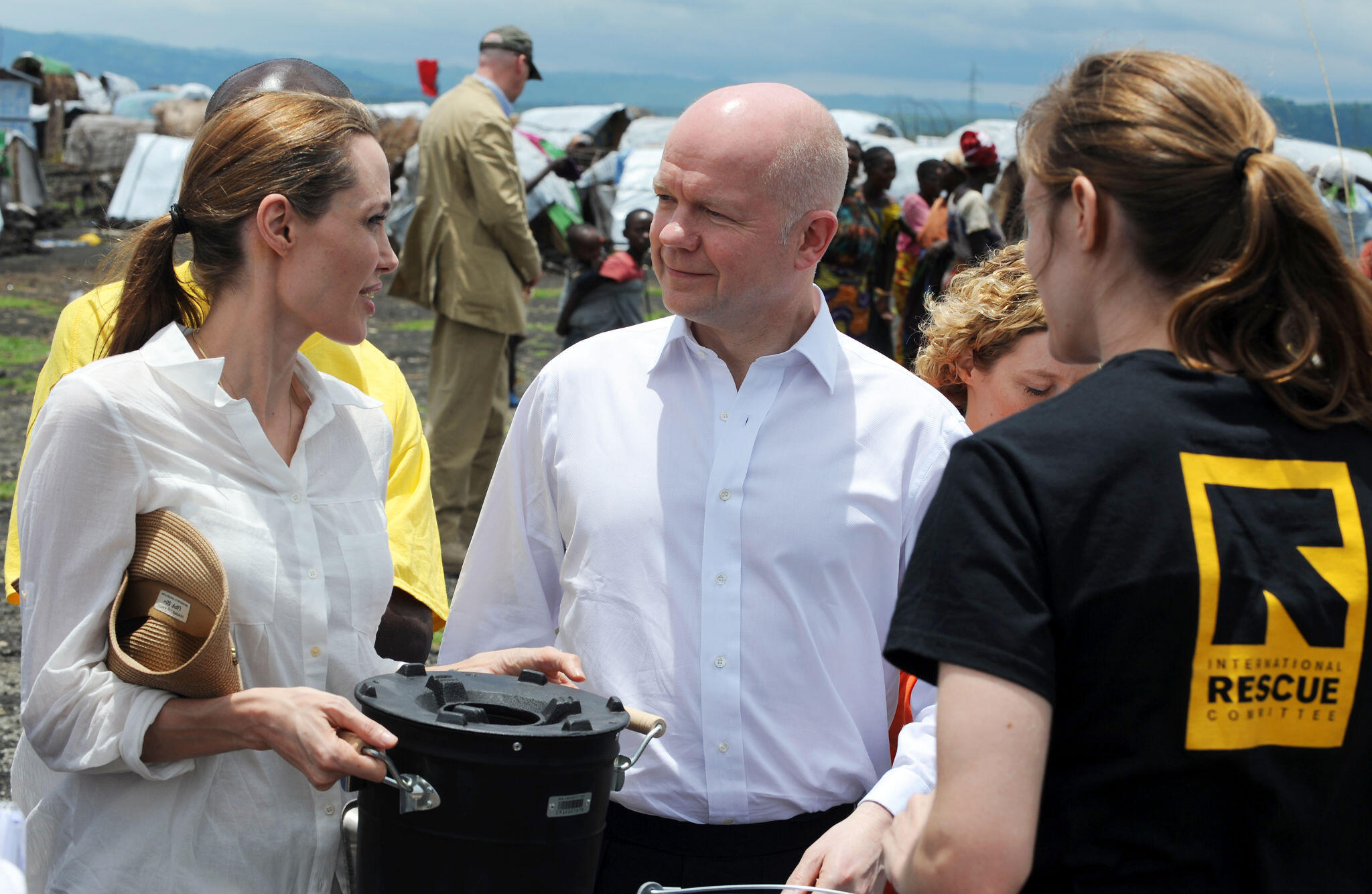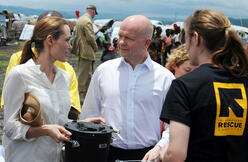
GOMA, Democratic Republic of Congo - Yesterday, Foreign Secretary William Hague and actress Angelina Jolie visited a displacement camp in eastern Democratic Republic of Congo where the International Rescue Committee is working to prevent violence against women and girls.
Hague and Jolie, in her role as a United Nations refugee agency special envoy, met with IRC staff and displaced women at Nzulo camp near Goma, the capital of North Kivu province. The camp shelters more than 10,000 of the estimated 218,000 people who have been uprooted by armed conflict in the region over the past year.
Camps like Nzulo and other makeshift settlements are often not a safe refuge for women and girls, who risk attack as they collect firewood or water, try to find assistance to support themselves and their families, or walk around at night.
While violence against women and girls is ever present in Congo, displacement over the past year has only exacerbated the problem. The IRC has seen a marked increase in violence against women and girls in North and South Kivu, peaking in September, when the number of cases reported was 190 per cent higher than the 2011 monthly average.
Protecting women and girls from violence is a core part of the IRC’s emergency response in eastern Congo. Here is a snapshot of our work:
The IRC provided life-saving care to more than 2,500 women and girls who have been raped or abused in the past year.

We distributed 12,000 emergency kits for women over the past few months to enable them to wash in private and to reduce the risk at night-time. The kits include extra clothing and underwear, strips of reusable cloth for sanitary towels, soap and two wash buckets, flashlights, as wellas whistles they can use to signal for help if there’s danger.
To reduce the amount of time women and girls spend collecting firewood, the IRC will begin distributing 2,500 fuel efficient stoves next month.
7 dedicated IRC teams provide lifesaving care to women and girls. As well as counselling and medical advice, survivors are given ‘post-rape kits,’ consisting of antibiotics, antiretroviral drugs to prevent HIV infection, and emergency contraception.
We are providing emergency delivery kits to visibly pregnant women to ensure they are able to deliver their babies safely even if they are unable to reach a health center.
“Women and girls have been on the frontline of the crisis in Congo for too long,” says Elinor Raikes, the IRC’s deputy regional director.
“The recent conflict has put them at even more risk from sexual and physical violence,” Raikes explains. “Violence against women and girls takes place in every conflict, which is why it is essential to prevent abuse in the first place and support survivors as they resume their role as leaders within their families and communities.”
Photography courtesy of Foreign and Commonwealth Office
Foreign Secretary William Hague and UNHCR Special Envoy Angelina Jolie visit Nzolo camp, March 2013. Picture Crown Copyright/MOD/LA(Phot) Iggy Roberts